The NBA Under David Stern
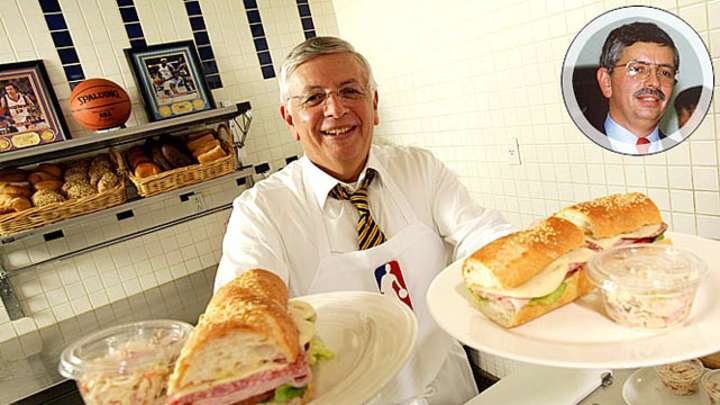
The NBA Under David Stern

NBA commissioner David Stern will retire on Feb. 1, 2014, 30 years after he took charge of the league. Deputy commissioner Adam Silver will replace him. Here is a look at some of the NBA's biggest developments under Stern. Stern, the son of a New York deli owner, was named commissioner on Feb. 1, 1984. The fourth man to hold the post (after Maurice Podoloff, J. Walter Kennedy and Larry O'Brien), the league's former general counsel and executive vice president soon earned a reputation as the best of the bunch and arguably as the top commissioner in pro sports. ''Nobody, including me, envisioned that this young, bright attorney would have such marketing genius,'' Washington owner Abe Pollin tells Sports Illustrated back in 1991.
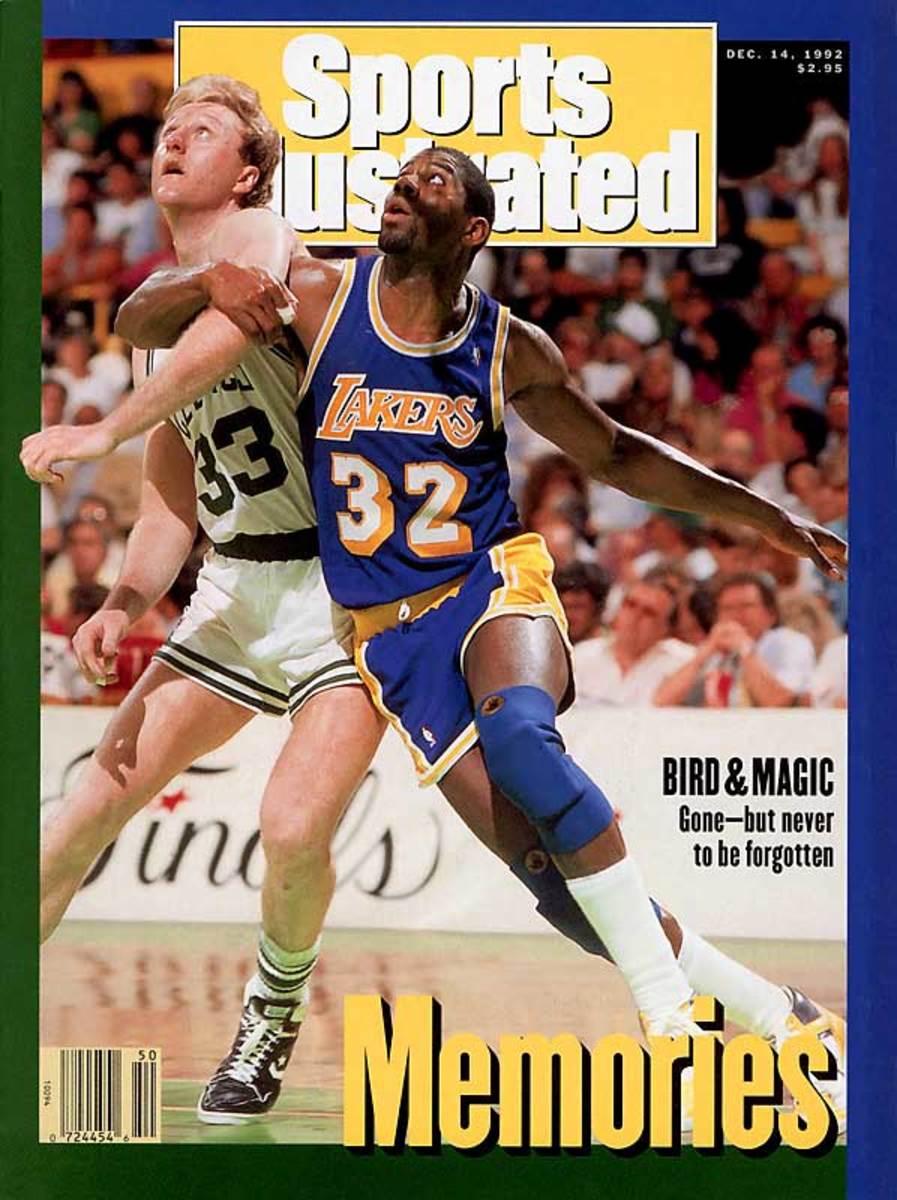
Stern inherited Larry Bird and Magic Johnson as marketable superstars in their prime and ascended to his current job less than five months before Michael Jordan arrived. But he also took over a league riddled with drug and image problems, and with several franchises teetering. The new commissioner rolled up his sleeves: The salary cap (which Stern helped to create) in 1984-85 was $3.6 million but has now grown to more than $58 million. In Stern's first season at the top, league network and cable TV contracts brought in about $33 million annually; that figure is up to about $930 million now.
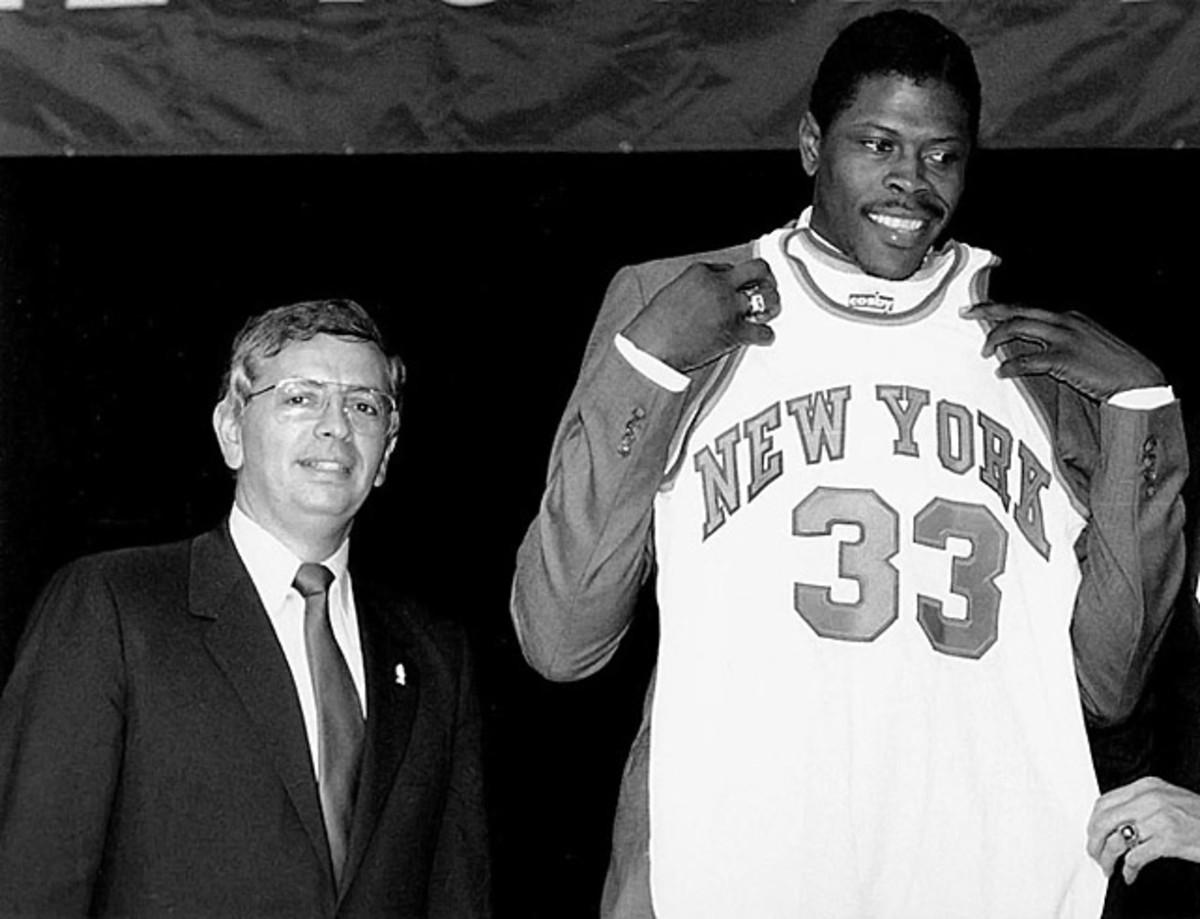
Stern got unwelcome attention in 1985 when, in the NBA's first draft lottery, he reached into the basketball-shaped plastic hopper and pulled out the envelope awarding the No. 1 pick, and Georgetown center Patrick Ewing, to the Knicks. Conspiracy buffs, convinced that the league wanted to revive a struggling anchor franchise in New York, claimed that Stern was tipped off by a dog-eared corner of the Knicks' envelope. Either that, they allege, or it was kept in a freezer to alert him by touch.

The worst part of his job, Stern has said, is banning players from participation, a penalty imposed on repeat drug abusers such as Roy Tarpley, Lewis Lloyd, Mitchell Wiggins and Richard Dumas. In 1986, three days after being selected by Boston with the second pick in the draft, Maryland's Len Bias died of a cocaine overdose. The NBA's anti-drug policy grew stiffer during Stern's tenure, and his league has largely avoided the problems with steroids and other performance-enhancing drugs that trouble baseball and football.
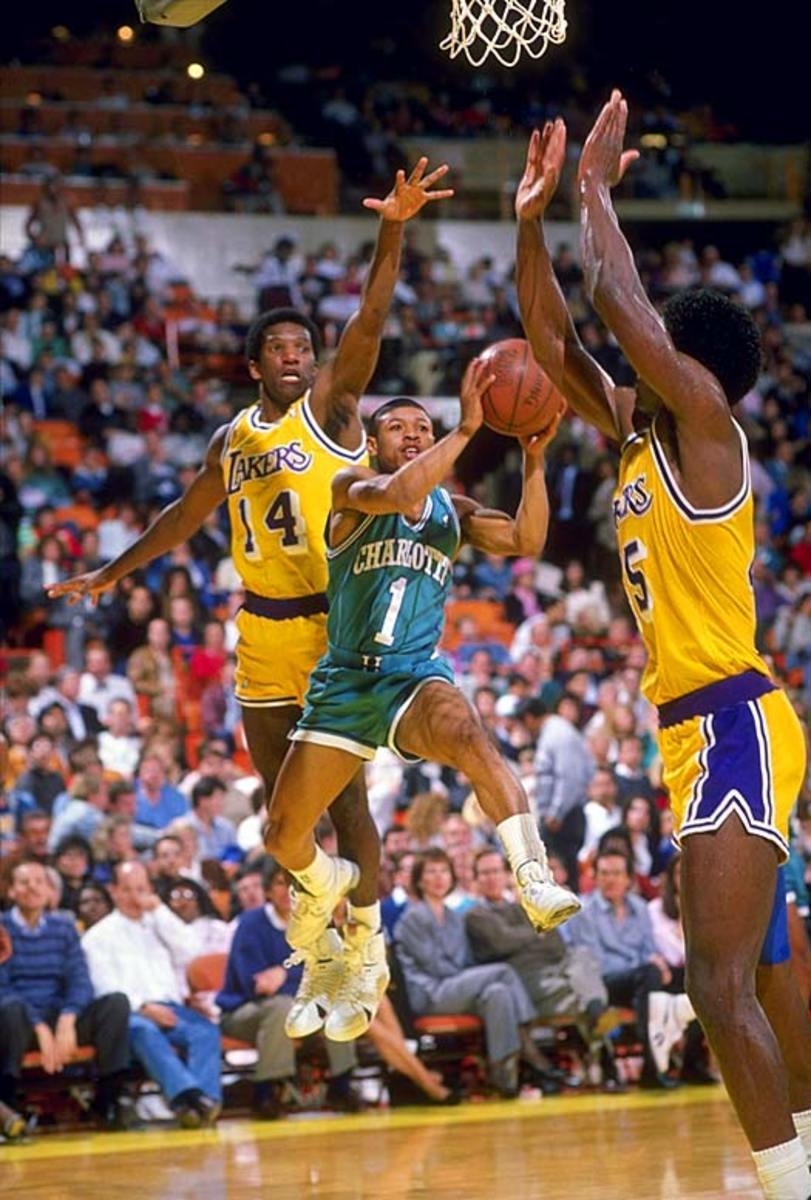
On April 22, 1987, the NBA announced four expansion franchises, with Charlotte and Miami beginning play in 1988-89 and Minnesota and Orlando debuting the following season. (Muggsy Bogues, pictured, was one of the Hornets' top picks in the expansion draft.) The league grew by seven teams on Stern's watch, with Toronto and Vancouver joining in 1995 and a replacement Charlotte club added for 2004-05.
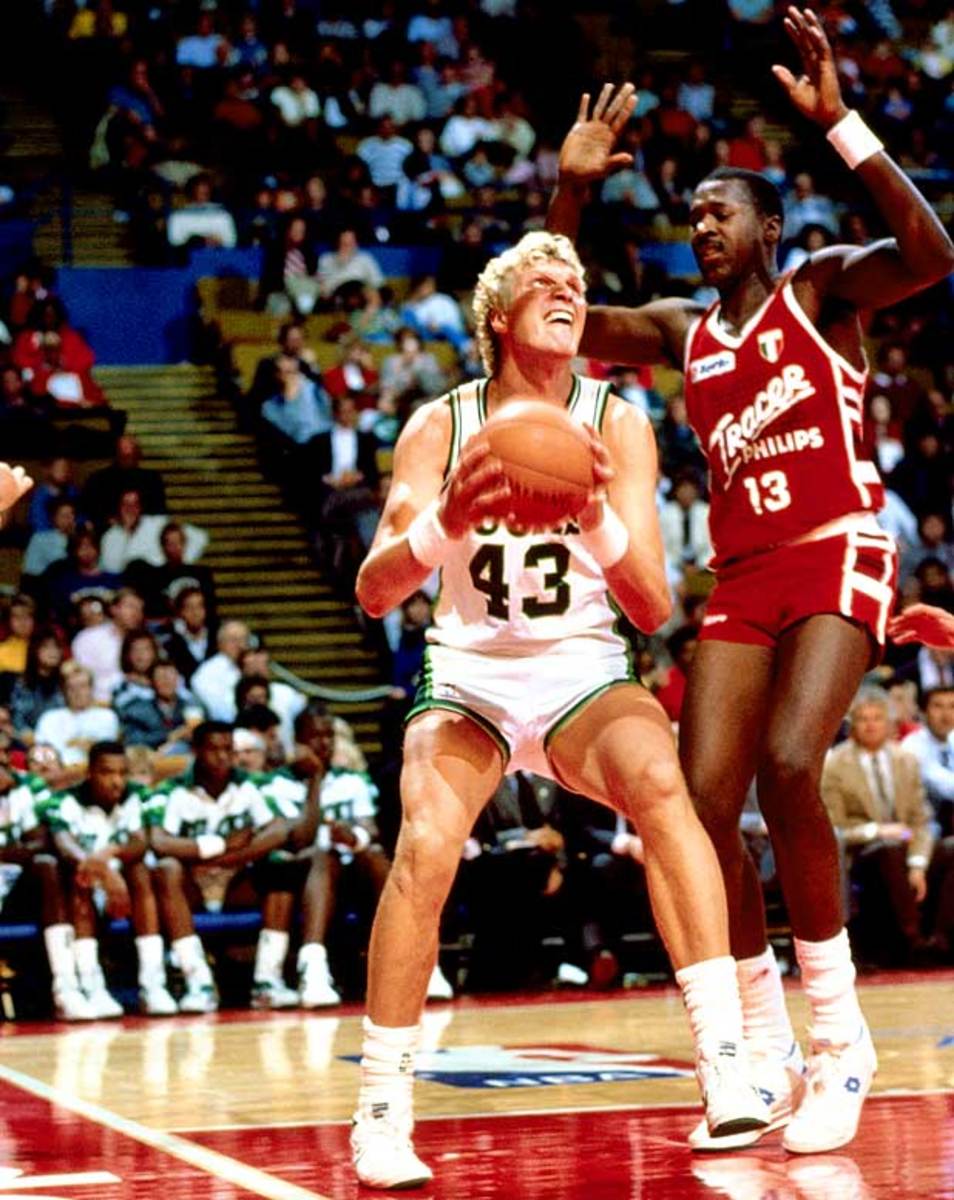
The first McDonald's Championship was played in Milwaukee in October 1987, featuring the Bucks (led by Jack Sikma, pictured), the Soviet Union national team and Italy's Tracer Milan club. It was the first tournament involving NBA teams and sanctioned by FIBA. With Stern pushing the NBA brand on an international scale, the Atlanta Hawks played in the Soviet Union in July 1988, and nine months later FIBA voted to allow NBA participation in the Olympics and the World Championships.
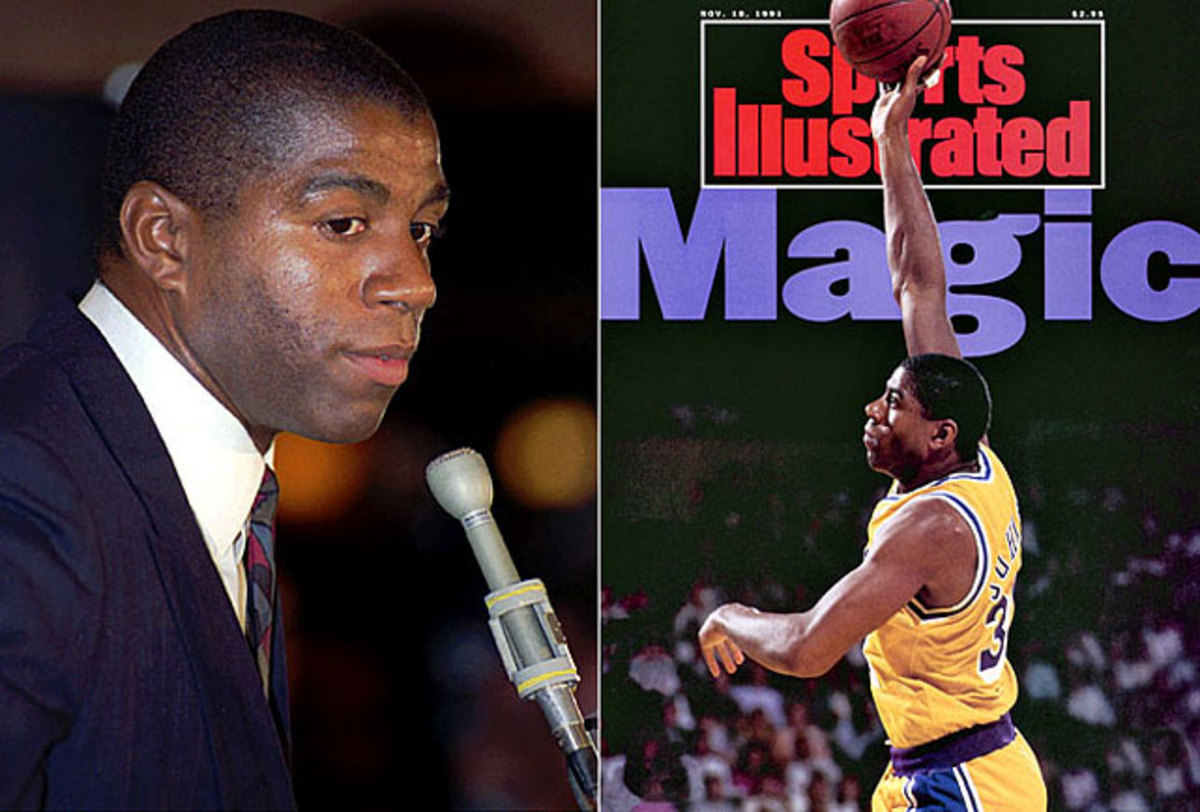
Most NBA fans age 25 or older can tell you precisely where they were on Nov. 7, 1991, when they heard the news that Magic Johnson had tested positive for the HIV virus and had retired immediately. Stern, too, has called it one of his darkest days as commissioner, though he beat back fears from players about participating against HIV-positive opponents and deemed Johnson eligible to play in the 1992 All-Star Game.
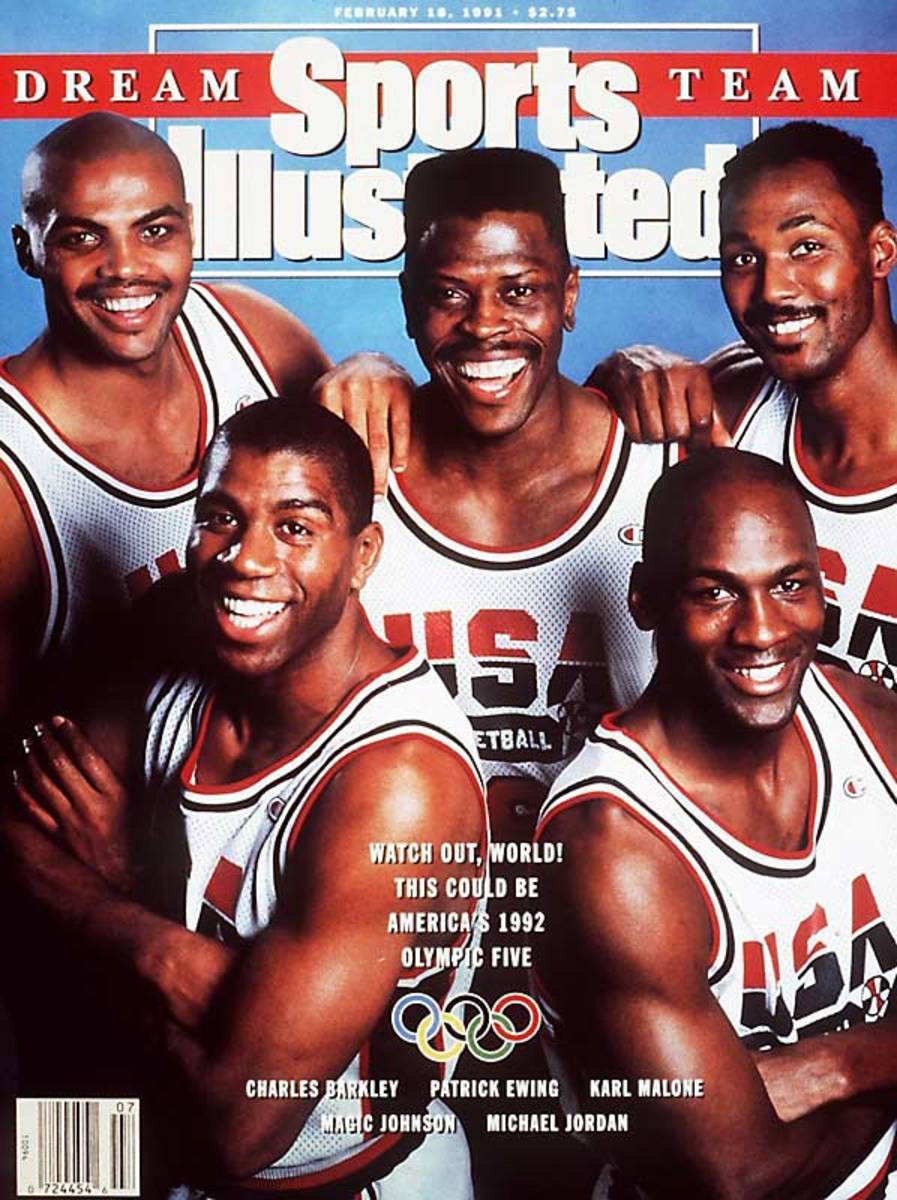
The Dream Team, featuring Jordan, Magic, Bird and other All-NBA players, beat Croatia 117-85 in Barcelona to capture the Olympic gold medal in August 1992. Widely considered the greatest sports team ever assembled, the U.S. squad dominated foes nightly by 40 points, traveled like rock stars and dazzled budding NBA fans as a marketing tool to grow the sport globally.
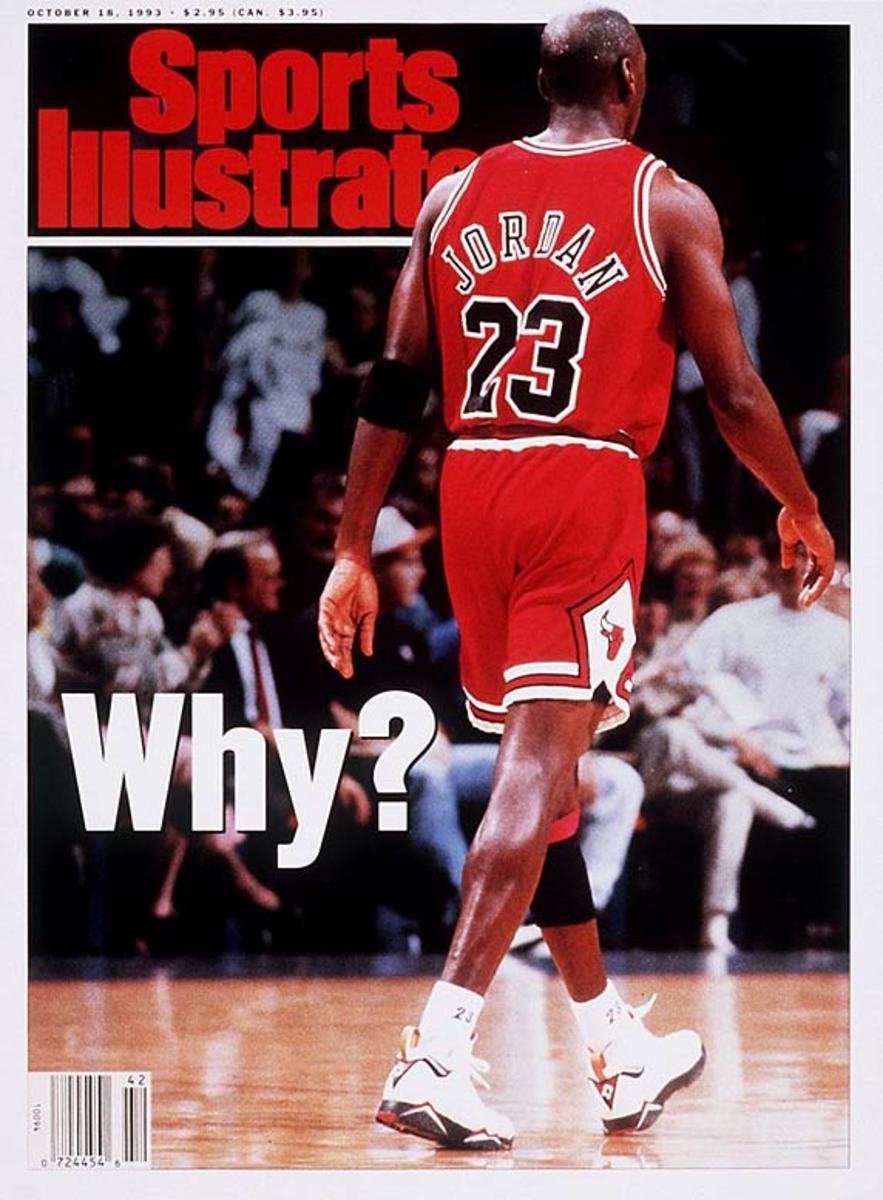
Jordan announced the first of his three retirements as a player in October 1993, surprising the sports world and fanning another Stern conspiracy. The NBA had begun an investigation in June into reports of Jordan's gambling activities but shut it down soon after Jordan's announcement. Skeptics suspected the Bulls' superstar and Stern reached an agreement allowing Jordan to step away or seek help away from the public eye. They built their case on Jordan's cryptic comment about a possible comeback (''... if David Stern lets me back in the league ...''). Jordan returned not once but twice on Stern's watch.
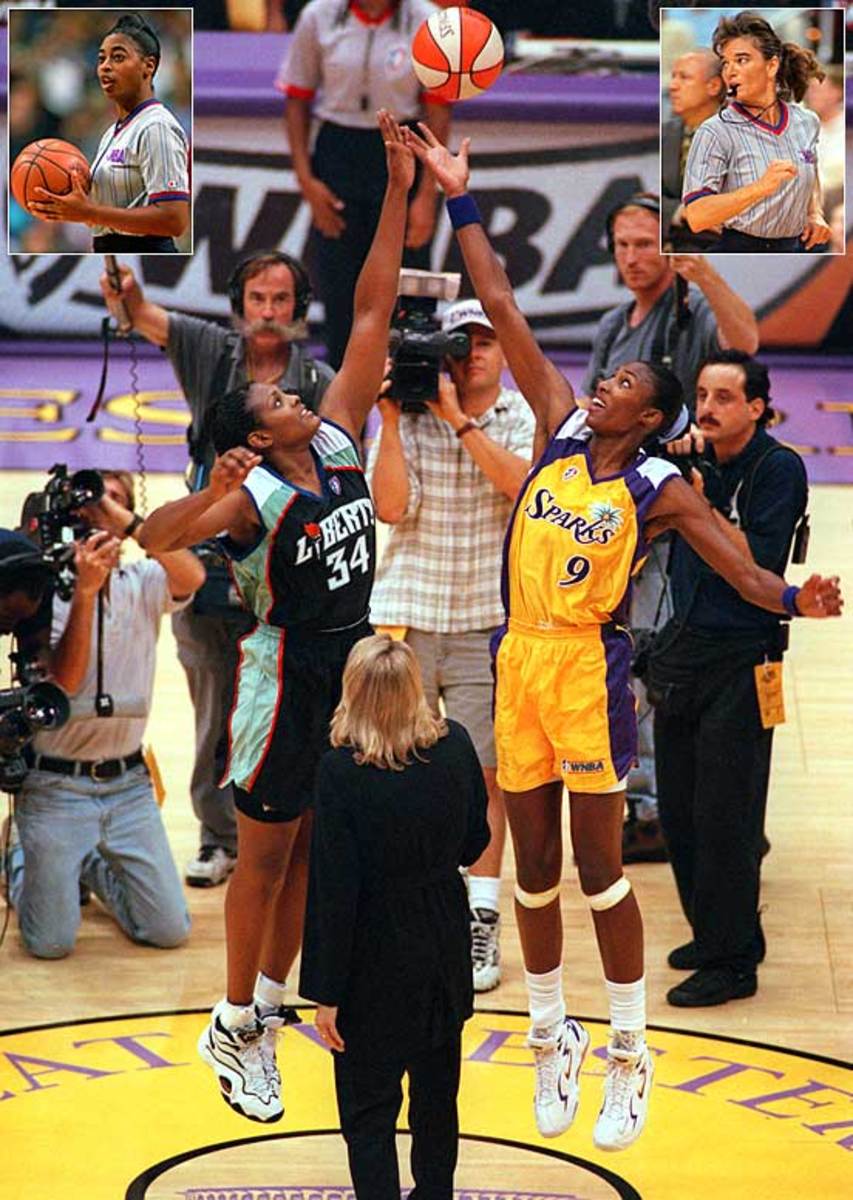
The New York Liberty faced the Los Angeles Sparks on June 21, 1997, in the first Women's National Basketball Association game. Five months later, on Oct. 31, Violet Palmer (left inset) and Dee Kantner (right inset) became the first females to referee an NBA game.
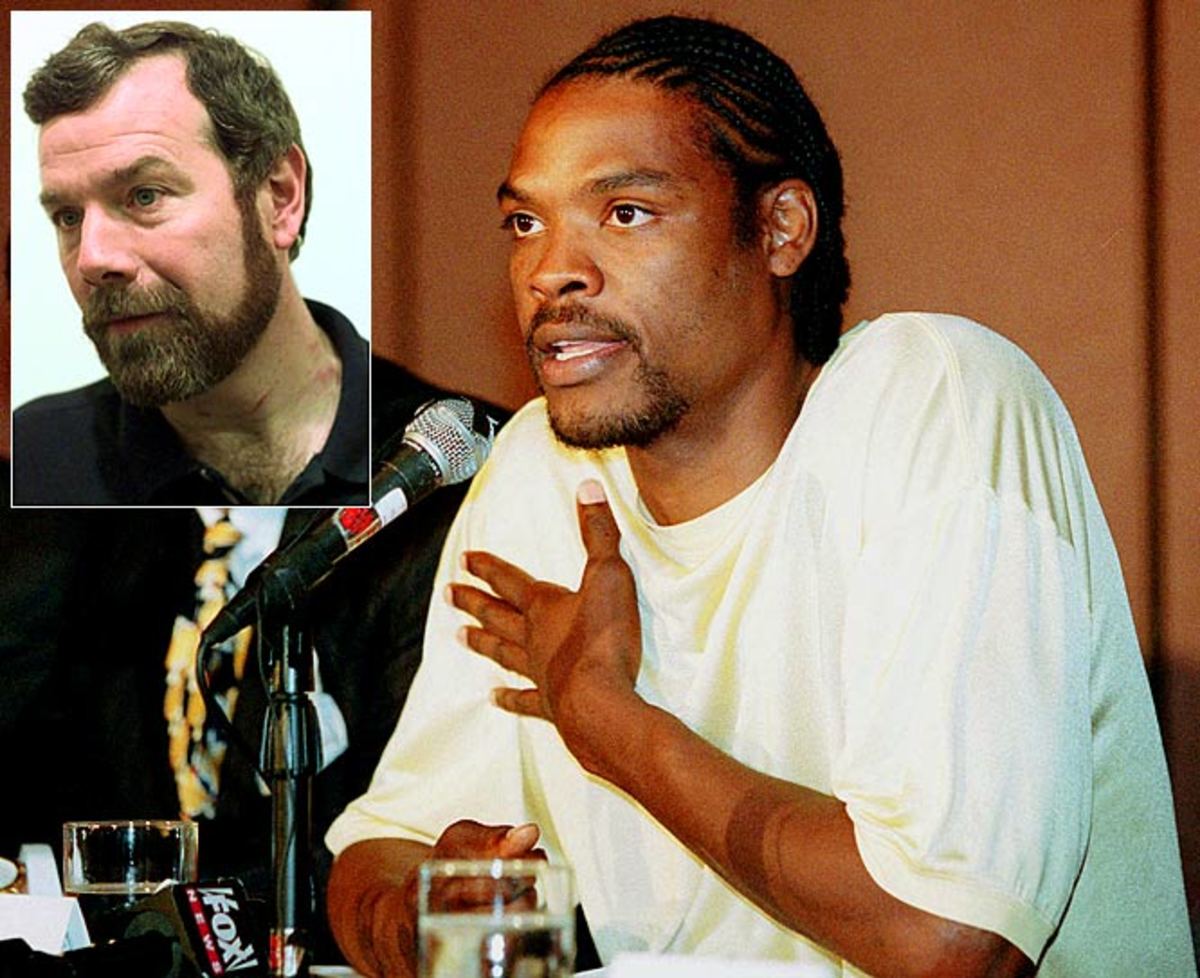
In December 1997, Stern suspended Golden State's Latrell Sprewell for one year after Sprewell choked coach P.J. Carlesimo at a Warriors practice. ''A sports league does not have to accept or condone behavior that would not be tolerated in any other segment of society,'' the commissioner reasoned. But in March 1998, an arbitrator reduced the suspension and, some say, undermined Stern's authority with sensitive labor talks looming. ''Sprewell crossed the line in his behavior,'' Atlanta center Dikembe Mutombo said. ''But so did David Stern.''
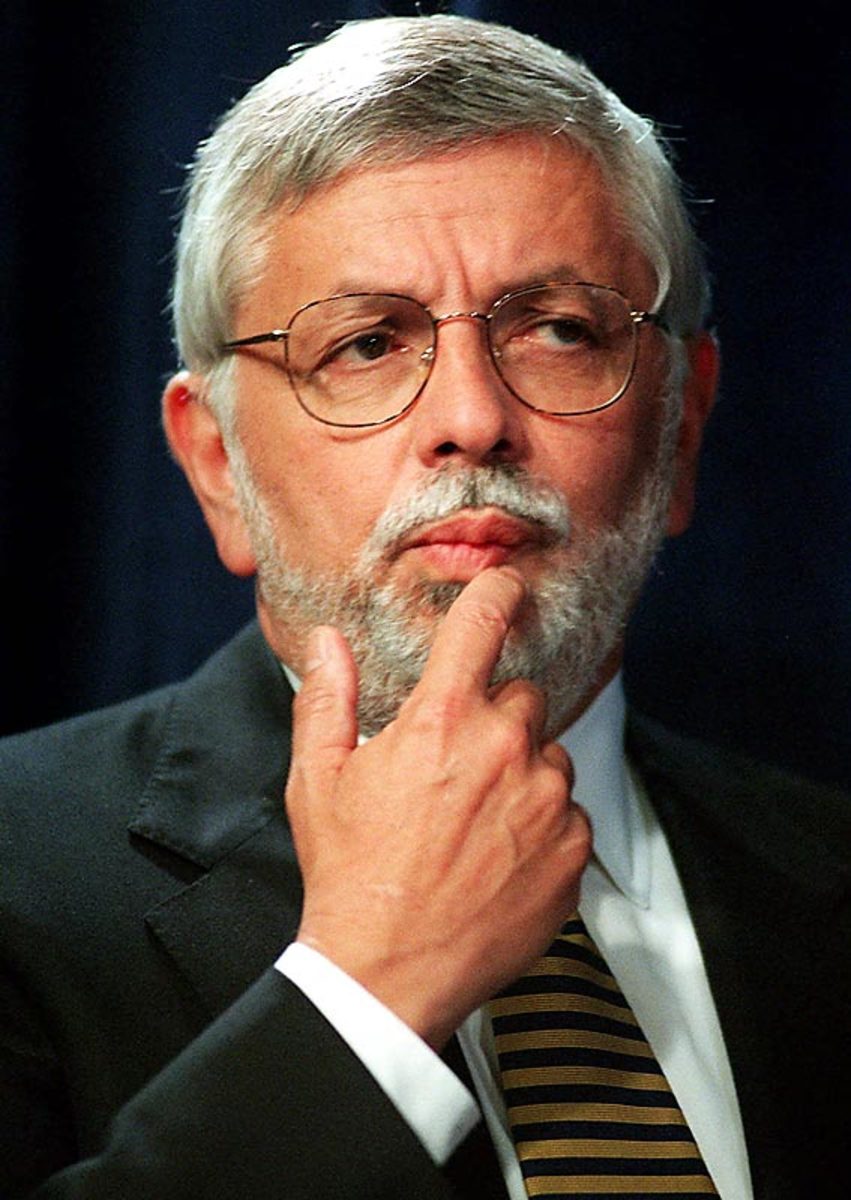
The beard growing unchecked on Stern's face was a giveaway that something was amiss. A 204-day lockout, from July 1, 1998 to Jan. 20, 1999, wiped out 464 games, All-Star weekend and hundreds of millions of dollars for the league and its players. NBA honchos said the lockout -- which was followed by a truncated 50-game season -- was a necessary evil to establish cost controls, but fans saw a piggish squabble over how a small group of people divvy up a $2 billion pie.
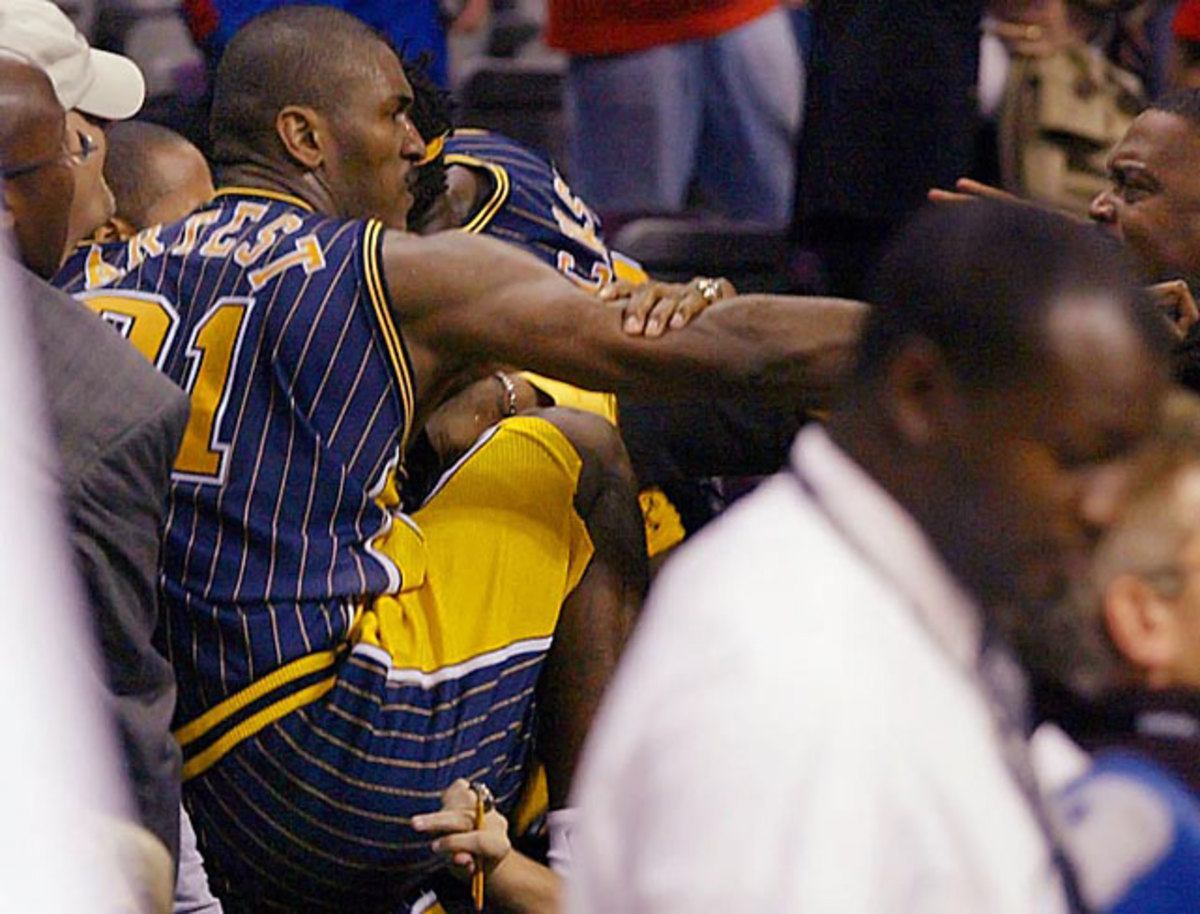
Indiana's Ron Artest reclined on the scorer's table during a ruckus at The Palace of Auburn Hills, a fan threw a cold drink at him and it was on: the ugliest brawl in NBA history. Stern issued nine suspensions totaling nearly 150 games after the November 2004 melee, wiping out Artest's season and probably costing the Pacers a shot at an NBA championship.

Steve Nash didn't like it, Tim Duncan called it ''a load of crap'' and other players saw a player dress code instituted before the 2005-06 season as racist and an affront to hip-hop culture. The rules -- primarily for injured or inactive players on a team's bench -- prohibited caps and retro jerseys, among other apparel choices. Stern saw it simply as a business dictating appropriate professional apparel. ''You would have thought I'd said you had to wear a tuxedo or tails to a game,'' he said.
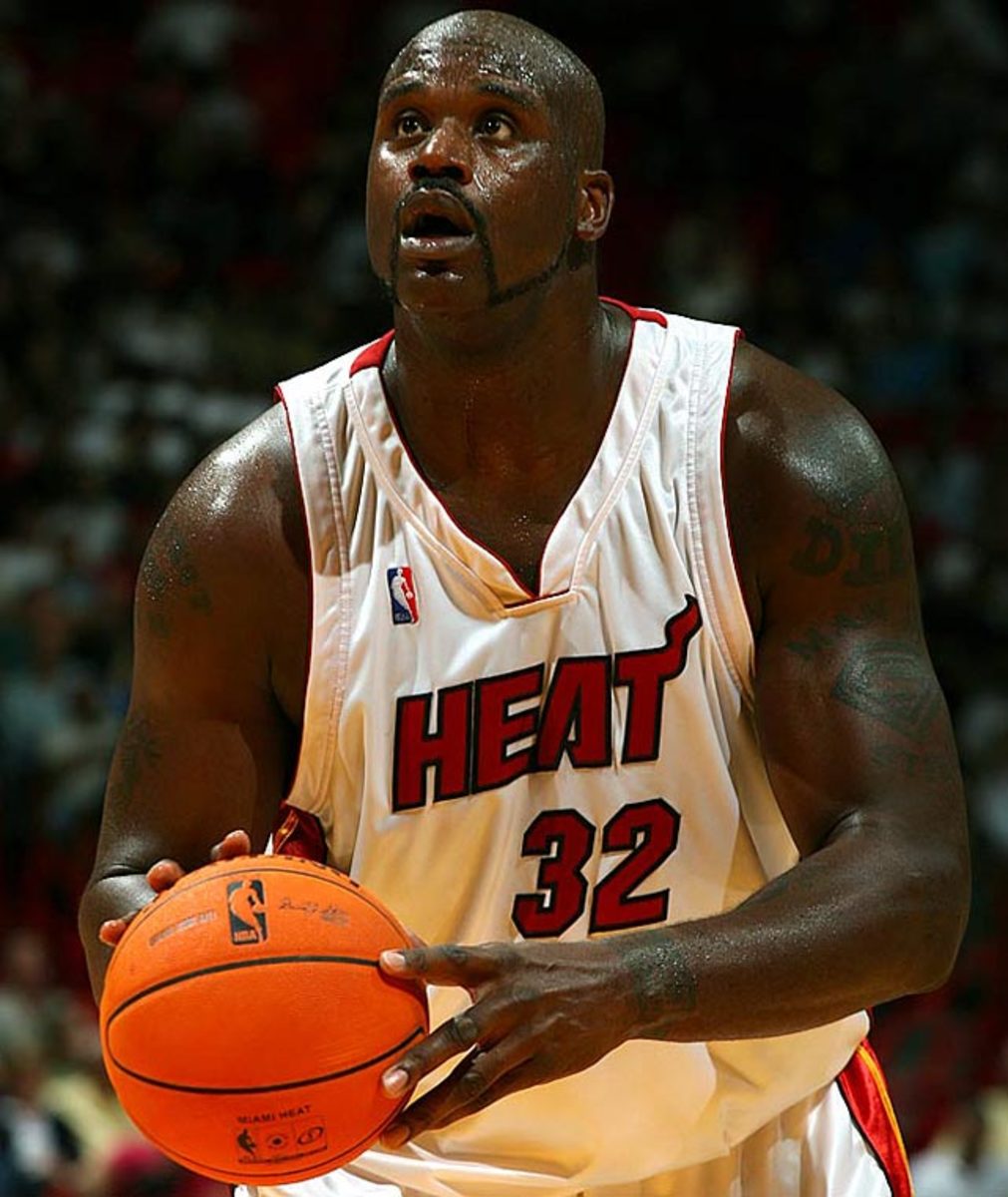
It was too slippery. It was too dry. It cut their fingers. It reminded Shaquille O'Neal of something ''you buy at the toy store.'' A new synthetic basketball introduced for the 2006-07 season was immediately unpopular with players. Less than three months into the switch, Stern announced that the league would bring back the traditional leather basketballs on Jan. 1, 2007.
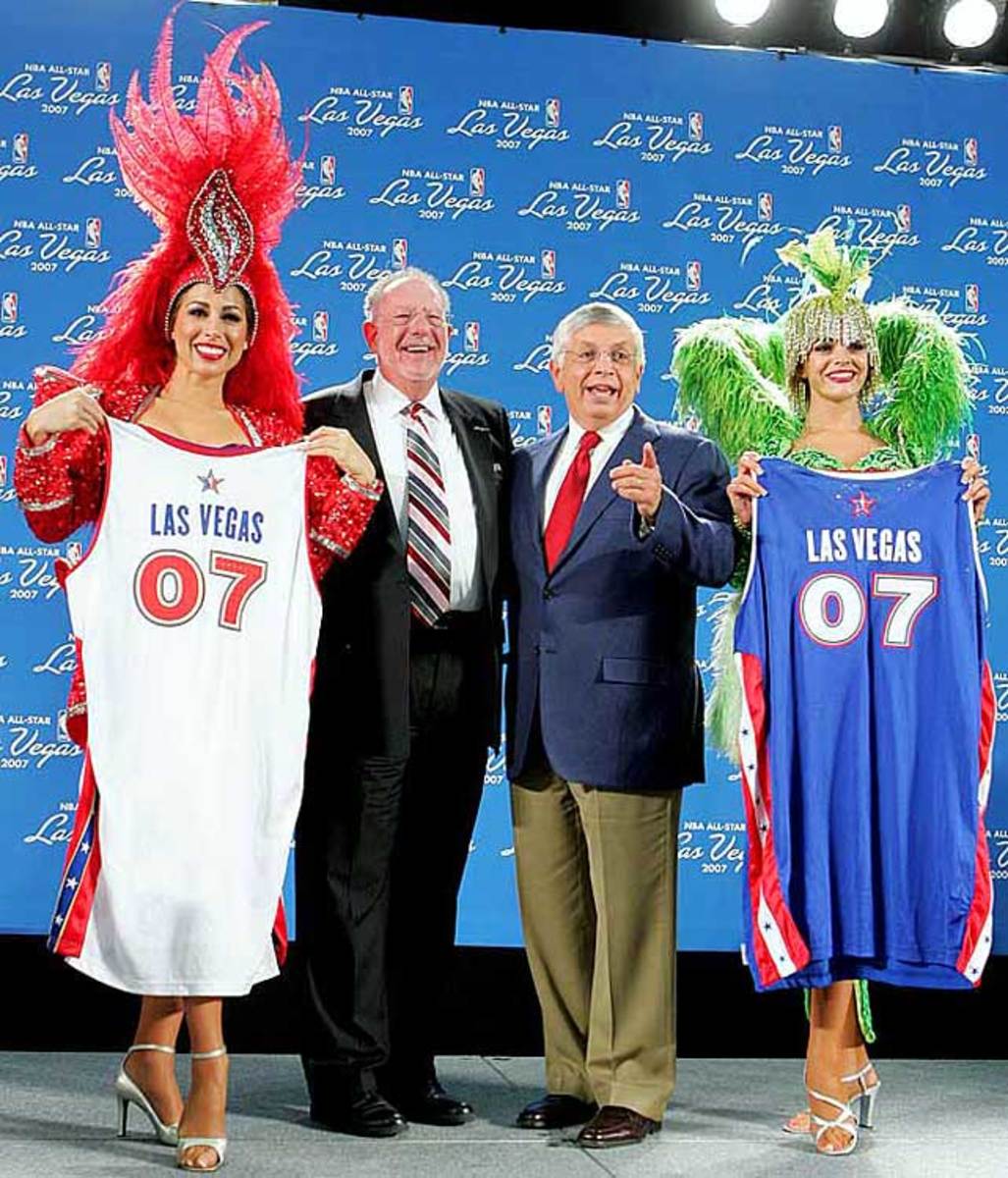
In February 2007, the NBA held its All-Star weekend in a neutral site for the first time and that site was ... Las Vegas! Some speculated that Stern's long-held resolve against sports gambling was thawing and that America's gambling capital could become home to an NBA franchise. The commissioner pointed out that betting on NBA games still would have to be dropped from the city's sports books. He added: ''I guess I would say that the NBA's position over the past 40 years or so has morphed with respect to gambling and betting.''
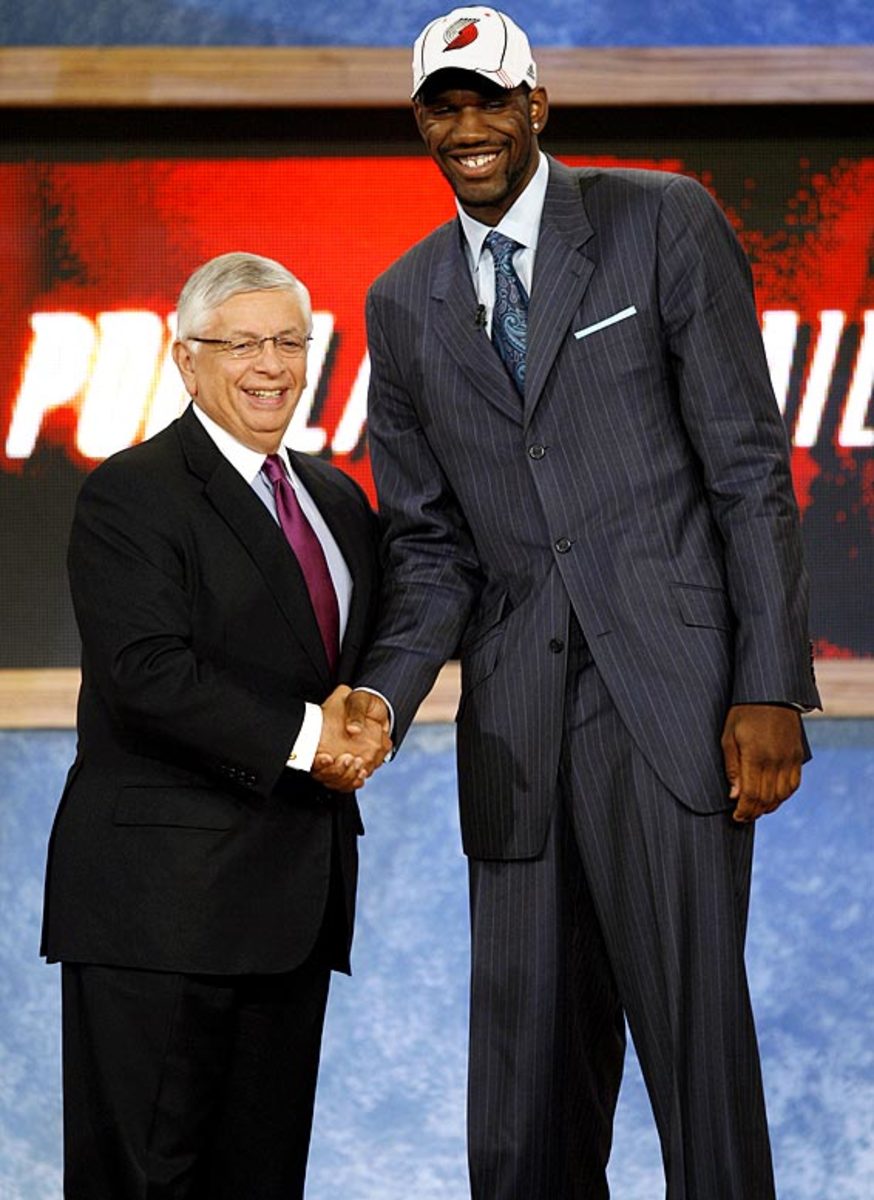
Greg Oden shook hands with Stern on draft night 2007, becoming the first player to enter the NBA after the league's new ''one-and-done'' rule requiring draft picks to be at least 19 years old and one year removed from high school.
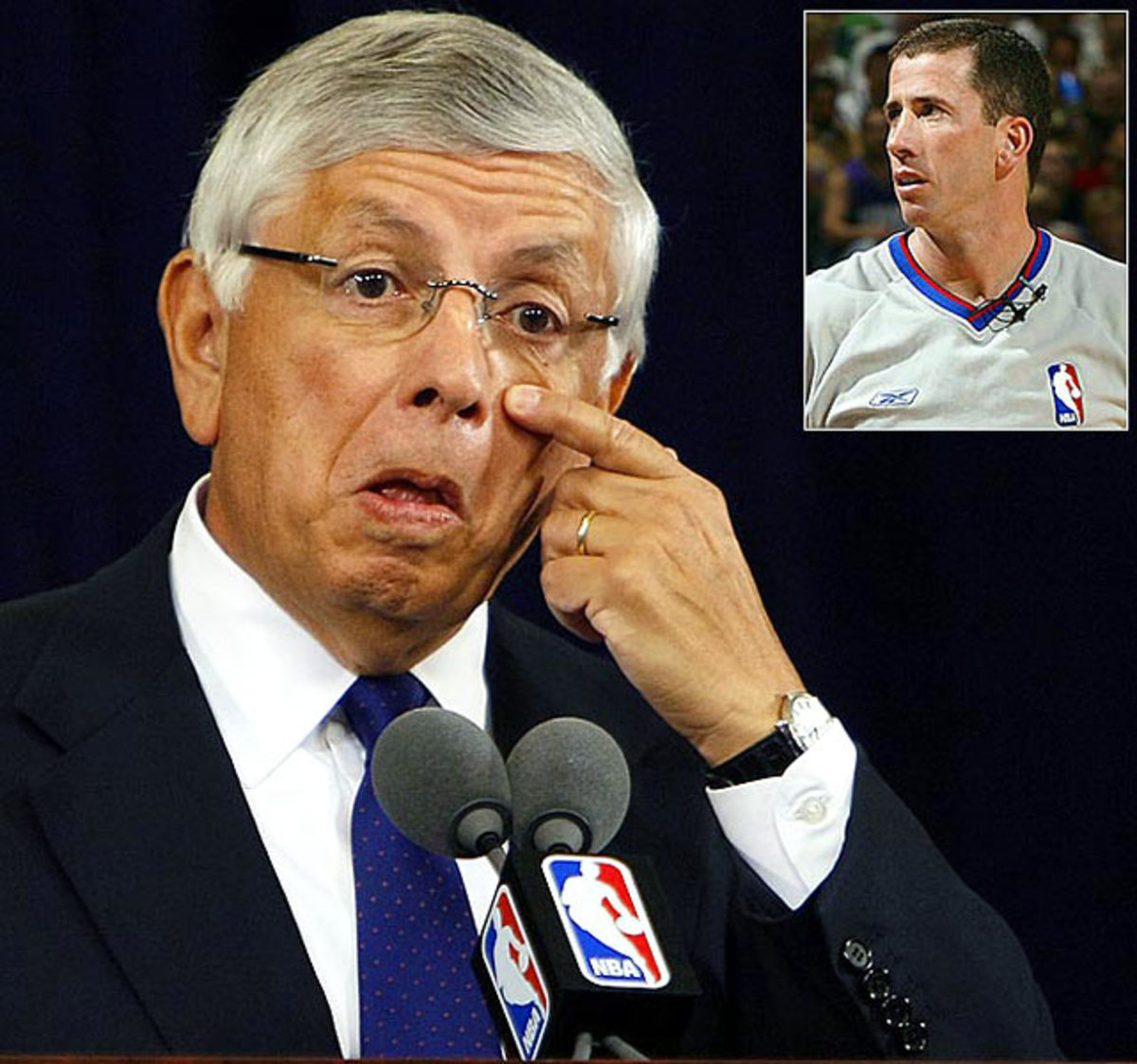
A dour Stern addressed reporters on July 24, 2007, about referee Tim Donaghy's illegal betting on NBA games, including some he worked over the previous two seasons. The commissioner characterized Donaghy, the target of an FBI investigation, as a ''rogue, isolated criminal'' but admitted that the revelations rocked his world. ''I feel betrayed by what happened on behalf of the sport, regardless of how protective I've been,'' Stern said. ''This is not something that is anything other than an act of betrayal of what we know in sports as a sacred trust.'' Donaghy would be sentenced to 15 months for the gambling scandal.
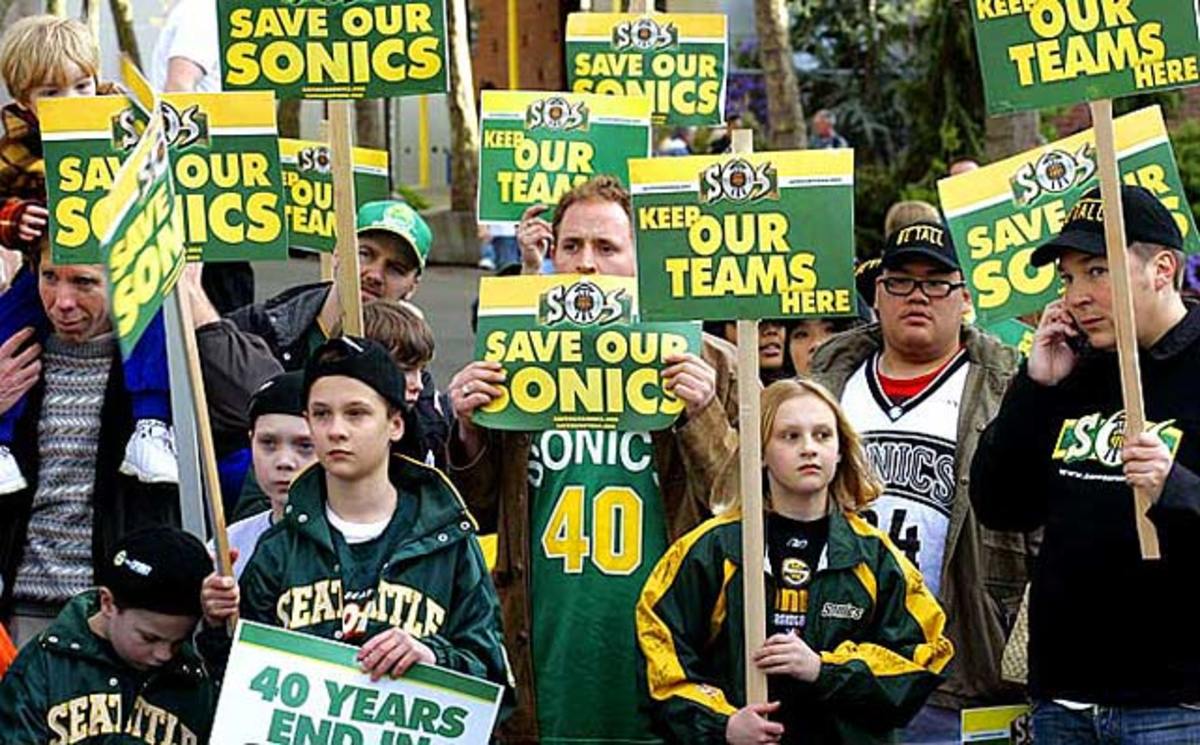
The city of Seattle got to keep the team nickname and uniform colors, but the SuperSonics were bound for Oklahoma City after a $45 million settlement with franchise owner Clay Bennett in July 2008. The deal, and Seattle's refusal to build a new publicly funded arena, ended the NBA's 41-year relationship with the Pacific Northwest city. ''Believe me, it's a big loss anytime you leave a city,'' Stern later said.
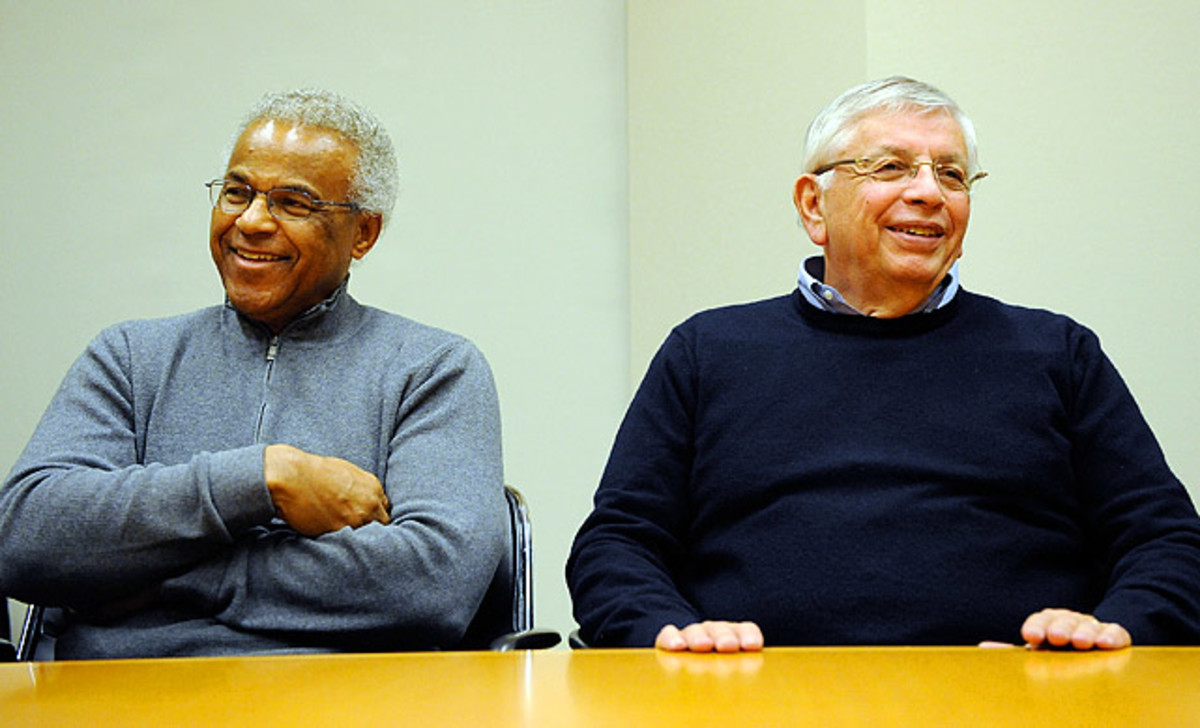
The second lockout on Stern's watch unfolded after the 2010-11 season, a five-month standoff between the owners and the players (led by Billy Hunter, pictured with Stern) as they clashed over how to split $4 billion annually. An agreement came together in late November 2011, setting up a shortened 66-game season that began on Christmas Day.
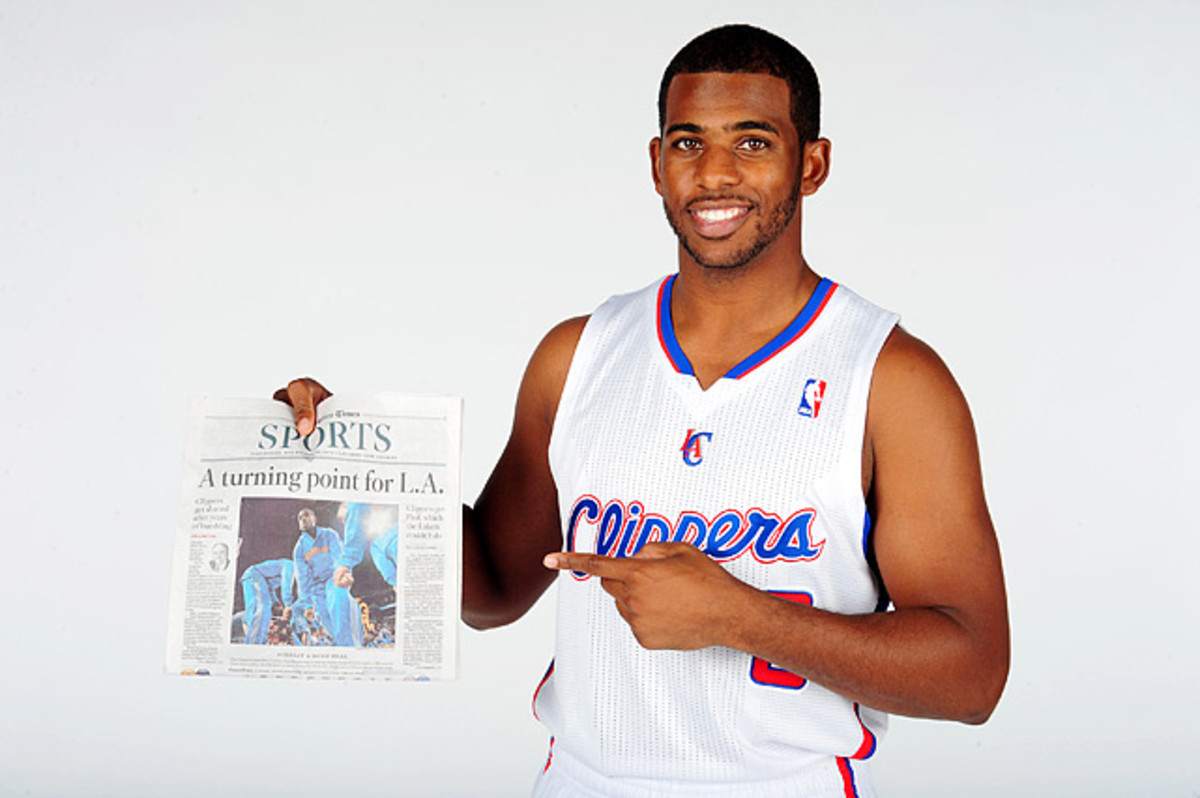
On the eve of the start of training camps after the 2011 lockout, the league-owned Hornets agreed in principle to a three-team trade to send Chris Paul to the Lakers. But Stern stunningly stepped in and vetoed the trade for ''basketball reasons" amid reports that owners had pressured the league to block the departure of another superstar from a small market to a big market. Paul did end up in Los Angeles after all -- but with the Clippers, who finalized a trade for the point guard less than a week later.
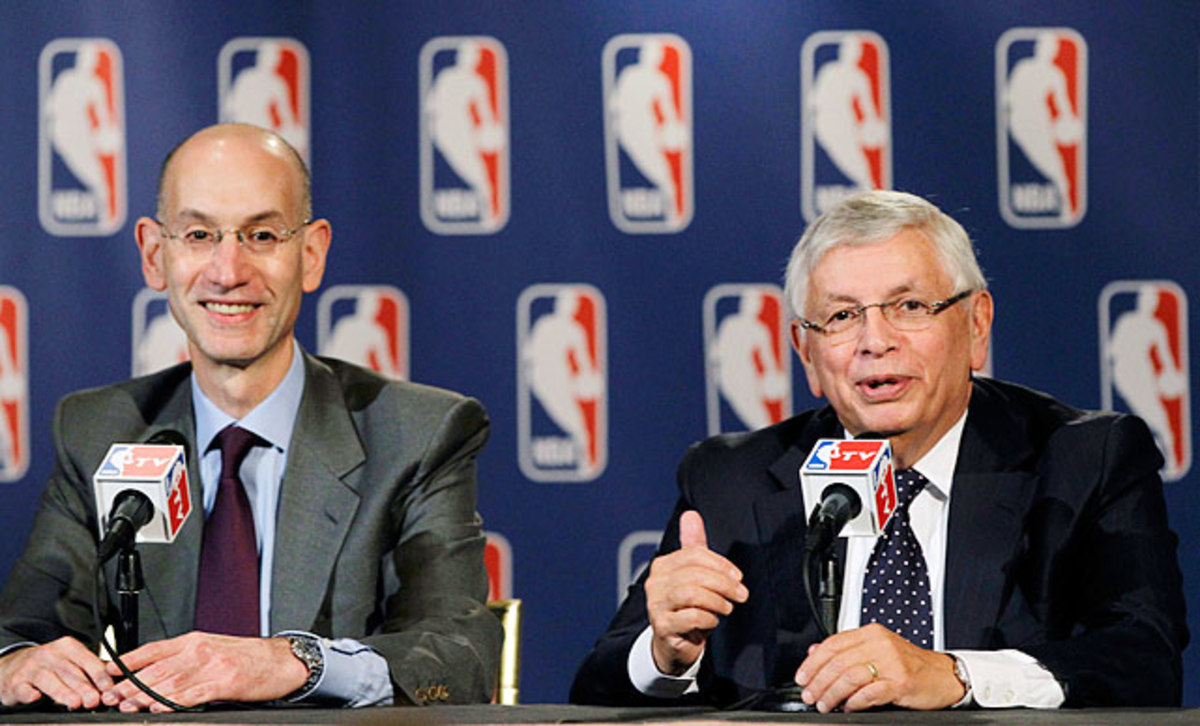
''You'll be remembered as the best of all time," deputy commissioner Adam Silver (left) told Stern during a news conference to announce Stern's plans to step down on Feb. 1, 2014. Silver has been the NBA's No. 2 since 2006.
